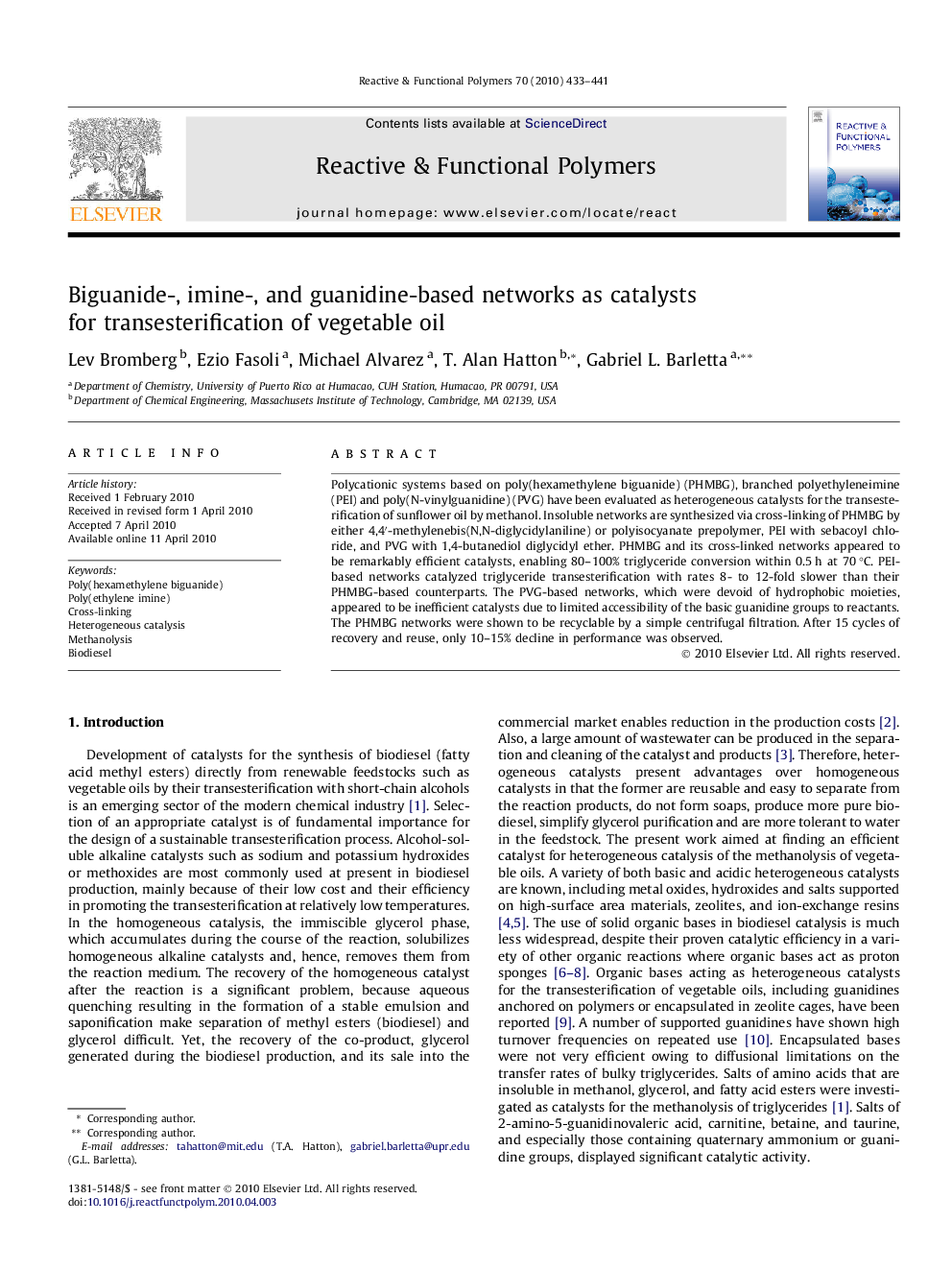| Article ID | Journal | Published Year | Pages | File Type |
|---|---|---|---|---|
| 5210713 | Reactive and Functional Polymers | 2010 | 9 Pages |
Abstract
Polycationic systems based on poly(hexamethylene biguanide) (PHMBG), branched polyethyleneimine (PEI) and poly(N-vinylguanidine) (PVG) have been evaluated as heterogeneous catalysts for the transesterification of sunflower oil by methanol. Insoluble networks are synthesized via cross-linking of PHMBG by either 4,4â²-methylenebis(N,N-diglycidylaniline) or polyisocyanate prepolymer, PEI with sebacoyl chloride, and PVG with 1,4-butanediol diglycidyl ether. PHMBG and its cross-linked networks appeared to be remarkably efficient catalysts, enabling 80-100% triglyceride conversion within 0.5 h at 70 °C. PEI-based networks catalyzed triglyceride transesterification with rates 8- to 12-fold slower than their PHMBG-based counterparts. The PVG-based networks, which were devoid of hydrophobic moieties, appeared to be inefficient catalysts due to limited accessibility of the basic guanidine groups to reactants. The PHMBG networks were shown to be recyclable by a simple centrifugal filtration. After 15 cycles of recovery and reuse, only 10-15% decline in performance was observed.
Keywords
Related Topics
Physical Sciences and Engineering
Chemistry
Organic Chemistry
Authors
Lev Bromberg, Ezio Fasoli, Michael Alvarez, T. Alan Hatton, Gabriel L. Barletta,
